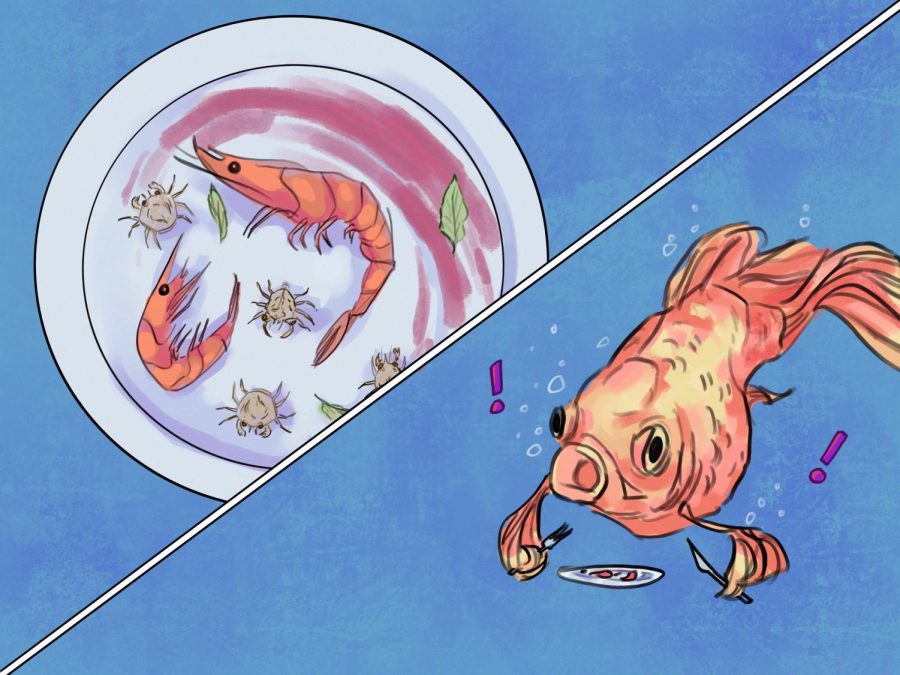Oregon State Receives $4.2 Million for Climate Change Research on Marine Species
Illustration depicts crab larvae and krill being eaten by fish.
January 6, 2023
Oregon State University received a $4.2 million federal grant to research climate change impacts on key marine species and have begun the four-year-long study, which spans multiple departments.
The grant was awarded to OSU after winning a national competition, where the National Oceanic and Atmospheric Administration asked for research proposals focused on multiple stressors in the ocean environment.
In particular, OSU’s proposal aimed to look at different marine climate change effects that impact two key ocean species in the Pacific Northwest: Dungeness crab and krill.
Francis Chan, an associate professor in the Department of Integrative Biology and the Director of the Cooperative Institute for Marine Ecosystem and Resources Studies, leads the study that will include data collected in seawater experiments at the Hatfield Marine Science Center, and input from researchers in the College of Earth, Ocean and Atmospheric Sciences, as well as traditional ecological knowledge from tribal communities on the West Coast.
The research will track four climate stressors on Dungeness crab and krill: ocean acidification from increased carbon dioxide in ocean water, ocean hypoxia or the loss of oxygen in ocean waters, marine heat waves and harmful algal blooms, which are connected to warming waters and can cause Dungeness crabs to have high levels of toxins that are dangerous for human consumption.
Chan explained that Dungeness crab and krill are vital to marine ecosystems in the Pacific Northwest, for ecological and economic reasons.
“Dungeness crab is the West Coast’s single most valuable fishery,” Chan said.
Krill play an important role in being the base of the marine food web, and organisms from salmon to whales rely on them as a food source, Chan said.
Not only will the research study how the four climate stressors are currently impacting the marine ecosystem, but it will also project the future of ocean waters.
“Unfortunately changes are happening today. The ocean that we see out there today will not be the same ocean as we will experience in 10, 15, 20 years,” Chan said.
But, Chain hopes this study will help communities better prepare for the inevitable.
“We just (don’t) want to be caught flat-footed on this… What is it we can do differently as changes are manifesting, so that we continue to have an ocean that is productive and sustainable?,” Chan said. “We have these fisheries that are just so important to so many people, communities on the coast (and) communities all through the state.”










































































































